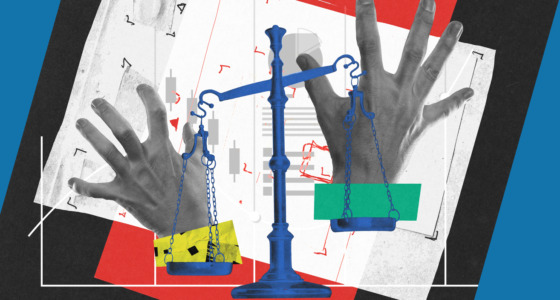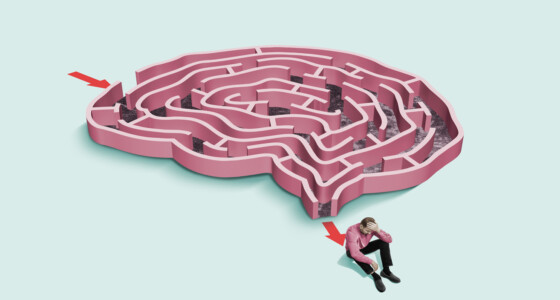

The example of George Foreman, a boxing legend, epitomizes resilience in the face of adversity. Despite retiring from boxing for five years and reaching the age of 45, Foreman defied the odds and made a remarkable comeback to the sport he loved. Many critics doubted his ability to compete with the younger generation and the evolving style of boxing. However, Foreman silenced his doubters and proved that age was no barrier to success.
Similarly, traders often face challenging and unpredictable situations. And it’s the ability to stay composed and bounce back from losses that determine their fate in the markets. If you want to master resilience in the face of adversity, this post will help you emerge stronger and trade better on Binomo.
Key characteristics of resilient traders

While people employ different coping skills when faced with a crisis, researchers have identified several key characteristics that are associated with resilience:
- Sense of control — Resilient traders take responsibility for their decisions and actions rather than blaming external factors for failures or losses. While some aspects of trading are beyond their control, they focus on what they can do to the best of their ability.
- Problem-solving skills — They don’t succumb to tunnel vision but rather maintain a broad perspective and identify potential solutions.
- Strong social connections — They maintain a network of fellow traders, mentors, friends, and family members who provide a source of support during challenging times.
- Survivor mentality — These traders see themselves as capable individuals who can adapt to changing circumstances and remain optimistic about achieving positive outcomes. It’s the opposite of a victim mindset.
- Emotional regulation — They understand that emotions influence decision-making, and they actively work on recognizing and managing their emotional responses.
- Self-compassion — Finally, resilient traders don’t harshly criticize themselves for losses or mistakes but instead treat themselves with kindness and understanding.
The role of discipline and self-awareness in avoiding emotional pitfalls
Discipline and self-awareness — both attributes serve as crucial pillars in a trader’s psychological toolkit. For instance, they both play a crucial role in emotional regulation. Traders who exhibit discipline control their impulses and stick to their trading plan even during volatile or stressful market conditions, while self-awareness allows them to recognize their emotional triggers and vulnerabilities.
The combination of discipline and self-awareness also fosters consistency and perseverance. Resilient traders remain steadfast in their commitment to their trading goals and continuously work on improving their skills and knowledge. They maintain their focus, knowing that resilience is not just about immediate results but about staying committed and patient over the long term.
Both also contribute to a trader’s ability to learn from mistakes. Without either of these traits (or skills, if you will), a trader is prone to repeating impulsive actions and limiting their capacity to grow and improve.

The psychology of dealing with losses and the fear of failure

When traders fear failure, it can prevent them from taking necessary risks and engaging in proactive trading strategies. Even worse, in an attempt to protect themselves from potential failure, they can unconsciously engage in self-handicapping behaviors, like avoiding trading opportunities or setting unrealistic goals. Research agrees — studies have found that students who fear failing resort to self-handicapping strategies that impede their academic success and perpetuate a cycle of failure.
To combat the fear of failure, work on developing alternative plans and strategies. Having contingency plans (Plan B, Plan C, etc.) will provide a sense of security and reduce your anxiety. Just acknowledge the possibility of adverse outcomes, and this realization will prepare you mentally to handle unexpected events.
Another way to deal is to see failure as an opportunity for growth and learning instead of viewing it as a sign of incompetence or inadequacy. Failure in trading, like in any other field, can be a valuable teacher that provides important insights and opportunities for improvement.
Constructive ways to process and learn from trading losses
After experiencing a trading loss, it’s normal to feel emotions such as frustration, disappointment, or even fear. Give yourself a brief period to acknowledge and process these emotions, but avoid dwelling on them for too long. This is actually a segway into the next tip: resist the urge to continuously replay the loss in your mind. Instead, acknowledge the loss and direct your attention toward constructive reflection.
Identify what you did well in the trade, as well as areas where you could have improved. Recognize your strengths, such as following your trading plan or executing proper risk management. Equally, be honest with yourself about any weaknesses that may have contributed to the loss, such as impulsive decision-making or exceeding your adequate level of risk.
Based on your analysis, make adjustments to your planned actions — it can be implementing new risk management techniques or refining your entry and exit criteria.
Strategies to cope with stress during intense market situations
These coping mechanisms present opportunities for personal growth and the development of inner strength:
- Reframe your online trading through Binomo as a journey of self-discovery.
- Recognize that trading involves uncertainties, and not every trade will result in a profit.
- Acknowledge that you have the ability to make informed choices and learn from both successes and setbacks.
- Shift your focus from feeling overwhelmed to actively seeking solutions.
- Be open to challenging and adapting previously held beliefs that are no longer serving your trading strategy.
- When possible, attempt to address the source of stress directly.
- Acknowledge and express your feelings in a healthy manner.
- Share your concerns with others to alleviate feelings of isolation.
- Take breaks from trading and engage in activities outside of the financial markets.
Remember, the journey toward greater resilience is a valuable one, and the rewards extend far beyond the financial markets!
Sources:
Resilience: characteristics and examples, Verywell Mind
What are the benefits of mindfulness? American Psychological Association
Stressors: coping skills and strategies, Cleveland Clinic









